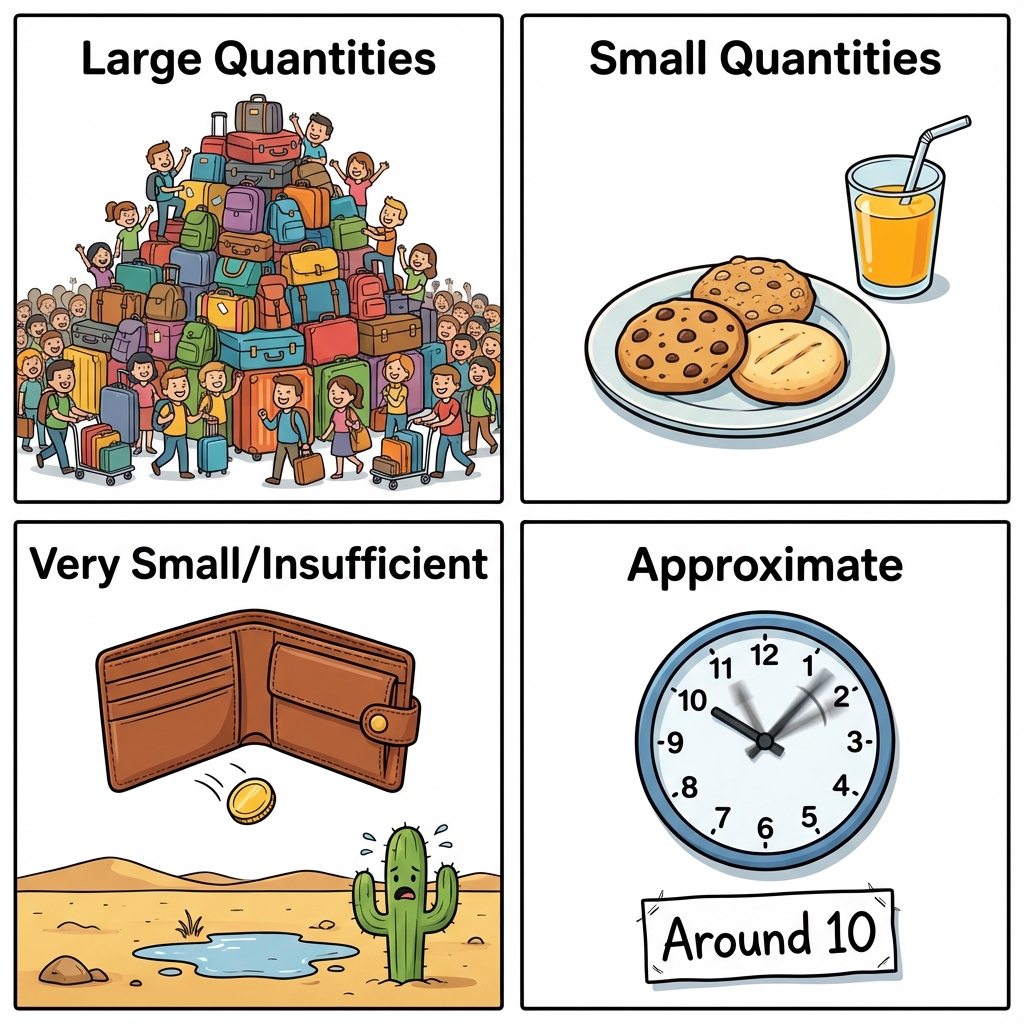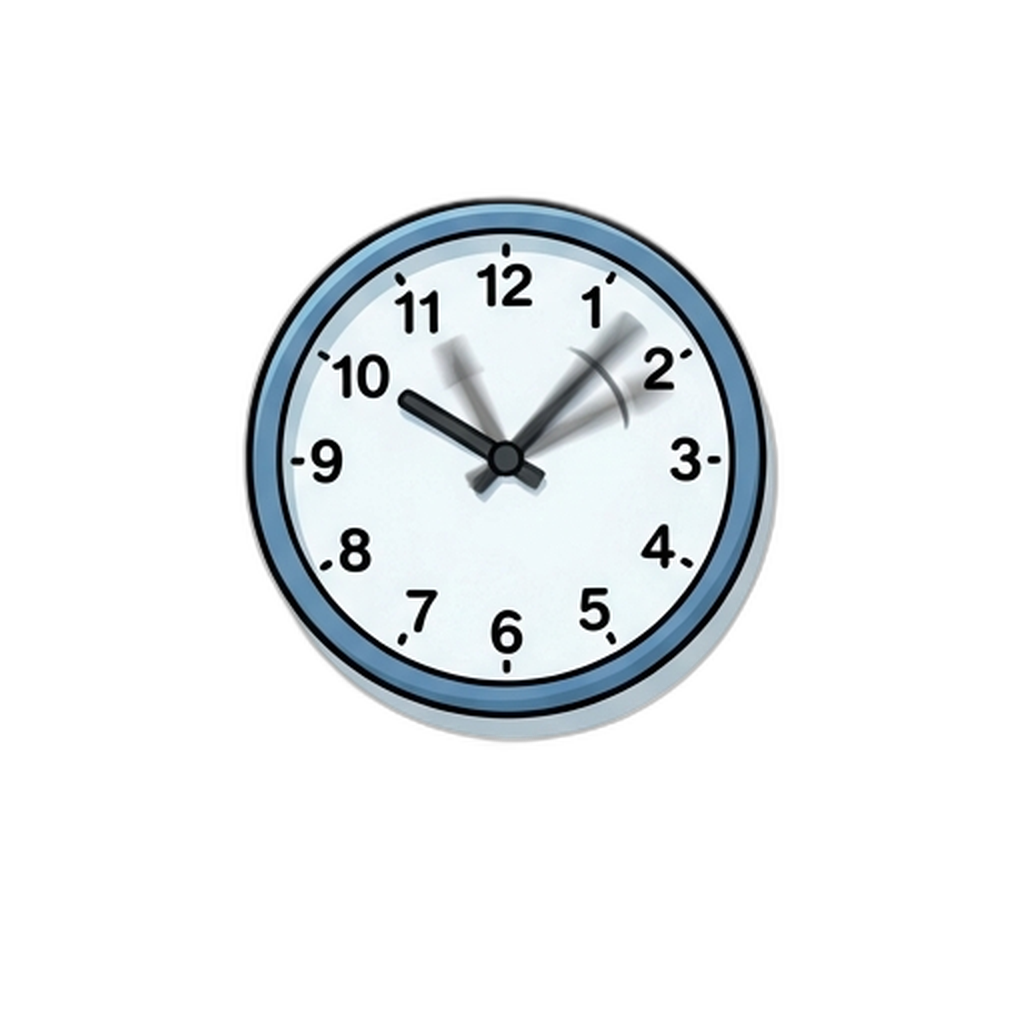English Words for Expressing Quantity
English uses a wide range of words to talk about amounts, from small quantities to large ones. This guide introduces clear, practical vocabulary to help you express quantity naturally.
English uses a wide range of words to talk about amounts, from small quantities to large ones. This guide introduces clear, practical vocabulary to help you express quantity naturally.
This article introduces useful quantity words grouped by meaning. You’ll learn when to use each word, how they differ, and how to choose the most natural option in everyday conversation or writing.


When something exists in a big amount, English has several words to express this clearly. These terms help you communicate abundance, high numbers, or large amounts in a natural way.
| Word | Use With | Example |
|---|---|---|
| a lot of | countable & uncountable | We have a lot of homework today. |
| plenty of | countable & uncountable | There’s plenty of space available. |
| numerous | countable nouns | They made numerous attempts to fix it. |
| loads of | informal, countable & uncountable | She has loads of friends in the city. |
These expressions help you describe abundance in both formal and informal situations, depending on which word you choose.
Not everything comes in large amounts. Sometimes we want to describe a limited number or a small amount. English uses specific words to show small quantities with different levels of emphasis.

| Word | Use With | Example |
|---|---|---|
| a little | uncountable nouns | I need a little water. |
| a few | countable nouns | She bought a few apples. |
| a bit of | uncountable nouns | Can I have a bit of sugar? |
| several | countable nouns | We visited several museums last week. |
These words help you express smaller amounts accurately, whether you’re talking about objects, resources, or time.

Sometimes the amount is even smaller—so small that it feels insufficient. English has specific adjectives and phrases to express scarcity or lack of something.
| Word | Use With | Example |
|---|---|---|
| hardly any | countable & uncountable | There’s hardly any milk left. |
| few | countable nouns | We have few options available. |
| little | uncountable nouns | He has little time to relax. |
| scarce | mostly uncountable | Fresh water is scarce in that region. |
These expressions are helpful when talking about limitations, shortages, or situations where something is not enough.
When the number isn’t exact or doesn’t need to be precise, English uses approximate quantity words. These expressions are common in conversation, storytelling, and informal descriptions.

| Word | Meaning | Example |
|---|---|---|
| dozens of | about 24 or more | There were dozens of people at the event. |
| hundreds of | a large, approximate number | Hundreds of students joined the workshop. |
| a couple of | two or a small number | I’ll need a couple of minutes. |
| around | approximately | It costs around $20. |
These words are useful when you want to be clear without giving an exact number, especially in casual conversations.
Quantity words are easier to remember when you group them by countable and uncountable nouns. Try connecting each word to real-life situations, like how much food you bought or how many messages you received today. These associations help you recall the right expression naturally and avoid common mistakes.
Memory Tip:
Use “few/little” for insufficient amounts, “a few/a little” for small but enough amounts.
Answers: several / little / a few / hardly any
⭐ Pro Tip: Choosing the right quantity word makes your English more precise, natural, and expressive.
English offers a wide range of words for describing quantities, from small and precise to large and approximate. Understanding how these words differ helps you express amounts clearly in everyday situations, academic writing, or professional communication. With a bit of practice, you’ll be able to choose the perfect quantity word for any context.